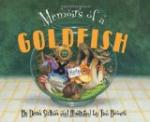“Can’t I bring you something?” he asked solicitously.
“No, thanks!” said I. “I don’t need anything that you can give me!”
“Very good, sir,” he replied. “Good night, sir.”
“Good night,” I answered, and he closed the door noiselessly.
I lit a cigarette and, tossing off my coat, sank into a chair. My mere return to that ordered elegance seemed to have benumbed my individuality. Downstairs thirty of our most intimate friends were amusing themselves at the cardtables, confident that at eleven-thirty they would be served with supper consisting of salads, ice-cream and champagne. They would not hope in vain. If they did not get it—speaking broadly—they would not come again. They wanted us as we were—house, food, trappings—the whole layout. They meant well enough. They simply had to have certain things. If we changed our scale of living we should lose the acquaintance of these people, and we should have nobody in their place.
We had grown into a highly complicated system, in which we had a settled orbit. This orbit was not susceptible of change unless we were willing to turn everything topsy-turvy. Everybody would suppose we had lost our money. And, not being brilliant or clever people, who paid their way as they went by making themselves lively and attractive, it would be assumed that we could not keep up our end; so we should be gradually left out.
I said to myself that I ought not to care—that being left out was what I wanted; but, all the same, I knew I did care. You cannot tear yourself up by the roots at fifty unless you are prepared to go to a far country. I was not prepared to do that at a moment’s notice. I, too, was used to a whole lot of things—was solidly imbedded in them.
My very house was an overwhelming incubus. I was like a miserable snail, forever lugging my house round on my back—unable to shake it off. A change in our mode of life would not necessarily in itself bring my children any nearer to me; it would, on the contrary, probably antagonize them. I had sowed the seed and I was reaping the harvest. My professional life I could not alter. I had my private clients—my regular business. Besides there was no reason for altering it. I conducted it honorably and well enough.
Yet the calm consideration of those very difficulties in the end only demonstrated the clearer to me the perilous state in which I was. The deeper the bog, the more my spirit writhed to be free. Better, I thought, to die struggling than gradually to sink down and be suffocated beneath the mire of apathy and self-indulgence.
Hastings’ little home—or something—had wrought a change in me. I had gone through some sort of genuine emotional experience. It seemed impossible to reform my mode of life and thought, but it was equally incredible that I should fall back into my old indifference. Sitting there alone in my chamber I felt like a man in a nightmare, who would give his all to be able to rise, yet whose limbs were immovable, held by some subtle and cruel power. I had read in novels about men agonized by remorse and indecision. I now experienced those sensations myself. I discovered they were not imaginary states.




